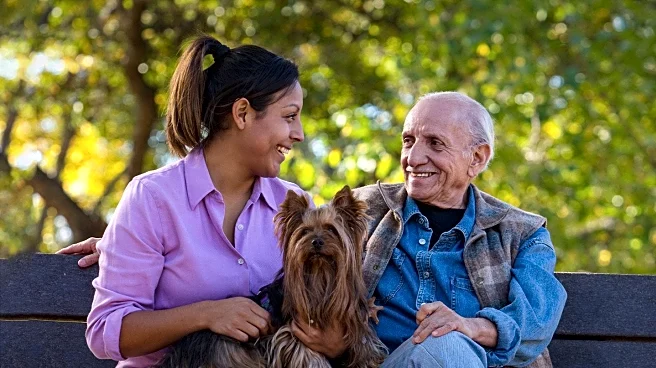What is the story about?
What's Happening?
Sandra Weintraub, a scientist at Northwestern University, has been studying 'super-agers,' individuals over 80 with memory abilities comparable to those in their 50s. Her research reveals that these super-agers do not share common diets or exercise routines but are united by strong social relationships. This finding suggests that social connections play a crucial role in maintaining cognitive health in old age, challenging the focus on biological factors alone in dementia research.
Why It's Important?
The study highlights the importance of social relationships in cognitive health, offering a new perspective on aging and dementia prevention. This insight could shift focus in public health strategies from solely biological interventions to include social and community-based approaches. Enhancing social connections may become a key component in promoting healthy aging, potentially reducing the incidence of dementia and improving overall well-being among the elderly.
What's Next?
Further research may explore how social relationships specifically contribute to cognitive resilience and how they can be integrated into aging policies. Healthcare providers and policymakers might consider developing programs that foster social engagement among older adults. This could lead to innovative approaches in dementia prevention and support for aging populations.
















